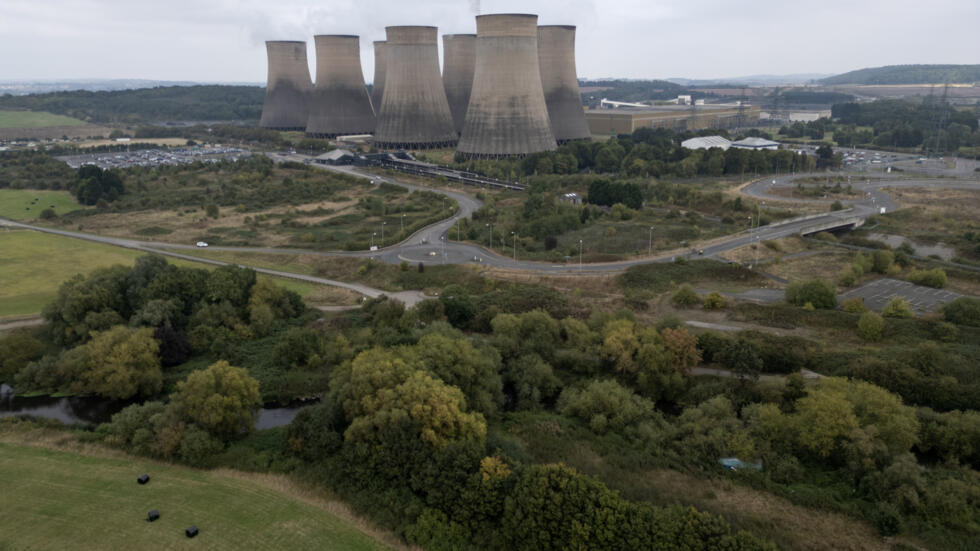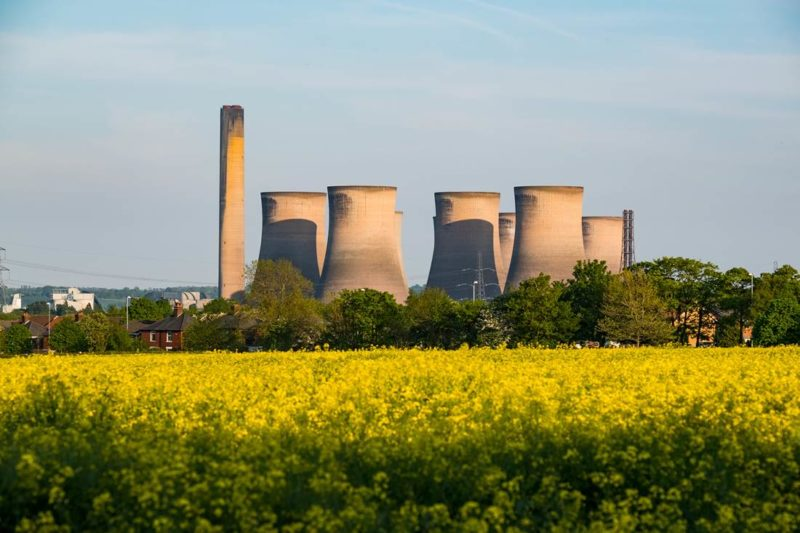Britain closes last coal power station, marking a historic milestone in the nation’s energy transition. With the shutdown of the Ratcliffe-on-Soar plant in the Midlands, the UK has officially become the first G7 country to end its reliance on coal for electricity generation.
This move signifies not only the end of over 140 years of coal power in Britain but also a bold step toward the country’s commitment to achieving carbon neutrality by 2050.
Britain Closes Last Coal Power: A New Chapter for Renewable Energy
As Britain closes last coal power station, it underscores the significant strides the nation has taken toward reducing its carbon emissions. The Ratcliffe-on-Soar plant, owned by Uniper, was one of the last remaining coal-fired power stations in the country.
Its closure symbolizes a major shift in Britain’s energy landscape, as the country transitions from fossil fuels to cleaner, more sustainable energy sources like wind, solar, and nuclear.
Read : UK Should Give Its UNSC Seat to India as Great Britain Is No Longer Great: Ex-UNSC Chief
The decision to close the last coal plant is part of a long-term strategy that began in 2015, when Britain announced plans to phase out coal power within a decade. At the time, nearly 30% of the country’s electricity came from coal, but by last year, this figure had dropped to just over 1%.
Read : Britain Likely to Lose Nearly One in Six Millionaires by 2028: The UBS Global Wealth Report
As Britain closes last coal power station, it becomes clear that the country’s commitment to reducing greenhouse gas emissions has been successful. According to data, Britain’s greenhouse gas emissions have more than halved since 1990, thanks in large part to the rapid decline in coal-fired electricity.
The Significance of Closing the Last Coal Power Station
The fact that Britain closes last coal power station is not only a significant moment for the country but also for the world. As the first G7 nation to completely phase out coal power, the UK is setting a powerful example for other industrialized nations.

Energy-related emissions account for around three-quarters of global greenhouse gas emissions, making the transition away from fossil fuels essential to meeting the goals set out in the Paris Agreement on climate change.
While Britain’s success in becoming coal-free is commendable, there is still much work to be done globally. Countries like Germany and Japan continue to rely heavily on coal for electricity generation, with coal accounting for more than 25% of Germany’s electricity and over 30% of Japan’s.
Nevertheless, as Britain closes last coal power station, it paves the way for other nations to follow suit, demonstrating that a swift and decisive transition from coal is possible.
The closure of the Ratcliffe-on-Soar plant is also a reminder of coal’s once-dominant role in Britain’s energy history. Coal was the backbone of the Industrial Revolution, powering Britain’s growth into a global superpower in the 18th and 19th centuries.
Even into the 1980s, coal still accounted for 70% of Britain’s electricity generation. However, as concerns over climate change and pollution grew, the UK government began implementing stricter regulations, leading to the rapid decline of coal in the energy mix.
What Comes After Britain Closes Last Coal Power?
Now that Britain closes last coal power station, attention has shifted to what comes next in the country’s energy transition. The government has set ambitious targets to decarbonise the electricity sector by 2030 and achieve net-zero emissions by 2050. This will require a significant increase in renewable energy production, particularly from wind and solar power.

The closure of the Ratcliffe-on-Soar plant does not mean the end of the site itself. Uniper has announced plans to redevelop the location into a carbon-free technology and energy hub, a project that aligns with the UK’s broader goals of promoting clean energy innovation.
The transformation of the site reflects the changing priorities in Britain’s energy policy, moving away from fossil fuels and toward more sustainable energy solutions.
As Britain closes last coal power station, it also opens the door to new opportunities in the renewable energy sector. The UK is already a world leader in offshore wind power, and the government is investing heavily in expanding this capacity.
Additionally, nuclear power remains a key part of the country’s energy mix, providing a reliable source of low-carbon electricity.
Energy Minister Michael Shanks has noted that while the era of coal is ending, a new age of energy jobs is beginning. The transition to renewable energy is expected to create thousands of new jobs across the country, providing an economic boost while also addressing the urgent need to reduce carbon emissions. The shift away from coal is seen as a win-win situation for both the environment and the economy.
Global Impact and the Future of Coal
The decision to phase out coal in Britain has implications far beyond the UK’s borders. As Britain closes last coal power station, it is sending a message to the rest of the world about the feasibility of moving away from fossil fuels.
The G7 nations have collectively agreed to end coal-fired power generation by 2035, but Britain’s success shows that this timeline can be accelerated. Italy, for example, plans to end coal power by 2025, while France has set a target of 2027.
However, not all G7 countries are on the same trajectory. The United States and Japan, both of which still rely heavily on coal, have yet to set firm dates for ending coal-fired power.

Environmental groups have called for these nations to follow Britain’s lead and commit to a faster phase-out of coal. Christine Shearer, a research analyst at Global Energy Monitor, has pointed out that the next challenge is to ensure that the 2035 target is met, particularly in countries like Japan and the U.S.
As Britain closes last coal power station, it is clear that the world is entering a new phase in the fight against climate change. The transition away from coal is an essential part of meeting the targets outlined in the Paris Agreement, but it is only the beginning.
The focus must now shift to phasing out other fossil fuels, such as oil and gas, and investing in the development of renewable energy technologies.
As Britain closes last coal power station, it marks the end of an era and the beginning of a new chapter in the country’s energy history. The closure of Ratcliffe-on-Soar is a symbolic and practical step toward a cleaner, greener future.
Britain’s achievement in becoming the first G7 country to end coal power sets a powerful example for other nations, showing that it is possible to transition from coal while maintaining energy security and economic growth.
The next phase of the UK’s energy transition will focus on expanding renewable energy capacity, creating jobs, and reducing reliance on fossil fuels. As the world continues to grapple with the impacts of climate change, Britain’s success offers hope that a more sustainable energy future is within reach.

